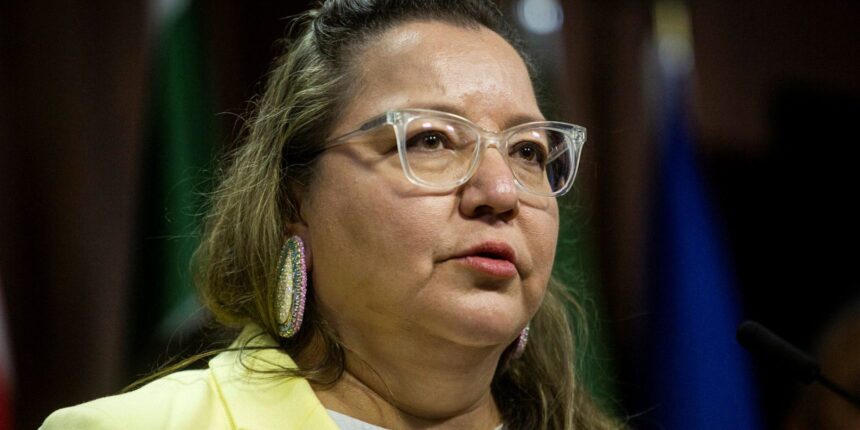In a watershed moment for Indigenous-Crown relations, the Assembly of First Nations (AFN) has mounted a coordinated response to the federal government’s controversial Bill C-5, which purports to align Canadian laws with the United Nations Declaration on the Rights of Indigenous Peoples (UNDRIP). The legislation, while hailed by some as progressive, has sparked intense debate among First Nations leaders who question whether it genuinely advances Indigenous sovereignty or merely provides political cover for Ottawa.
“What we’re witnessing is not just another legislative process—it’s a fundamental test of Canada’s commitment to true reconciliation,” said AFN National Chief Cindy Woodhouse during yesterday’s emergency assembly in Ottawa. “Bill C-5 presents both opportunity and risk for First Nations across the country.”
The AFN’s concerns center primarily on implementation mechanisms, with leaders arguing that the bill lacks clear enforcement provisions and maintains federal authority over how Indigenous rights will ultimately be interpreted. This critique comes amid growing frustration among First Nations communities regarding the pace of change in government-Indigenous relations.
The organization has established a special technical working group to analyze the legislation line by line, focusing particularly on provisions related to free, prior, and informed consent—a cornerstone principle of UNDRIP that many Indigenous leaders fear is being diluted in the current draft. The group includes legal experts, knowledge keepers, and representatives from various treaty territories across Canada.
“We cannot accept symbolic gestures disguised as substantive change,” remarked Regional Chief RoseAnne Archibald of Ontario. “First Nations require meaningful jurisdiction over our territories, resources, and governance systems—anything less perpetuates colonial relationships.”
The federal government maintains that Bill C-5 represents a significant step forward in harmonizing Canadian law with international Indigenous rights standards. Indigenous Services Minister Patty Hajdu defended the legislation in Parliament last week, calling it “a framework for advancing reconciliation in partnership with Indigenous peoples.”
However, AFN leadership has pointed to several precedents where federal legislation initially promising breakthrough changes ultimately failed to deliver meaningful transformation on the ground. The organization has outlined alternative approaches that would strengthen Indigenous authority in the implementation process, including the establishment of an independent oversight body with enforcement capabilities.
Economic considerations feature prominently in the AFN’s position, with concerns that without strong protection for resource rights, First Nations communities will continue to face barriers to economic self-determination. Resource development projects on traditional territories remain a contentious issue, with First Nations often finding themselves excluded from meaningful decision-making despite court rulings affirming their rights.
“This isn’t simply about cultural recognition—it’s about economic justice,” stated Chief Willie Sellars from British Columbia. “Our communities deserve both the authority to protect our lands and the opportunity to benefit from their sustainable development.”
As parliamentary debate on Bill C-5 intensifies, the AFN has launched a nationwide advocacy campaign engaging grassroots community members, international allies, and Canadian civil society organizations. Their strategy includes direct lobbying of parliamentarians, public education initiatives, and potential legal challenges should the legislation pass without substantial amendments.
Constitutional experts suggest that the AFN’s position reveals deeper tensions in Canada’s approach to implementing UNDRIP principles. “The government is attempting to balance international obligations with domestic constitutional realities,” explained Dr. Kiera Ladner, Canada Research Chair in Indigenous Politics and Governance. “However, First Nations are correctly identifying that true implementation requires systemic change, not just statutory acknowledgment.”
As this legislative battle unfolds, it represents more than a policy disagreement—it highlights fundamental questions about Canada’s path toward reconciliation and decolonization. Will Bill C-5 mark a genuine shift in Indigenous-Crown relations, or will it join a long list of well-intentioned but ultimately ineffective attempts to address historical injustices?
How Canadians answer this question may define the country’s relationship with First Nations for generations to come.










